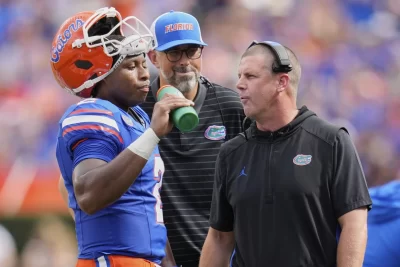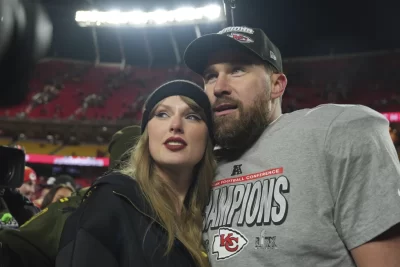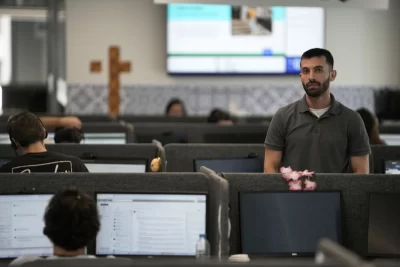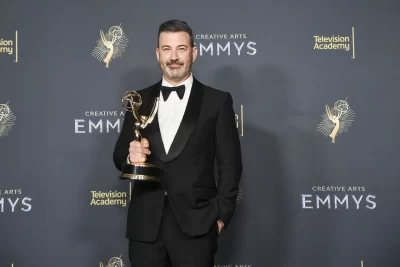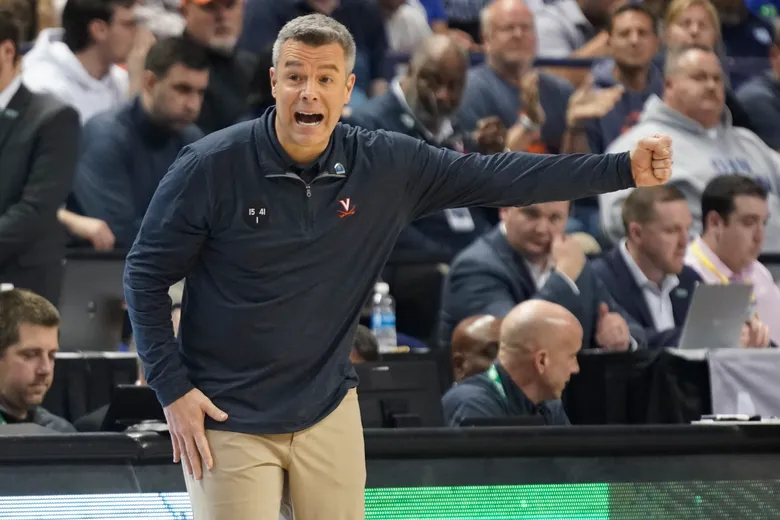
Virginia coach Tony Bennett has been around college basketball for most of his life.
His father, Dick Bennett, was a Division III coach during his formative years in the 1960s and ‘70s, and later coached at Green Bay, Wisconsin and Washington State. Tony played for his dad in college before a brief career in the NBA and overseas, and then got his own coaching start on his bench with the Badgers, the father-son duo ultimately taking them to the Final Four.
The game changed over Dick’s four decades in coaching — the shot clock and 3-point line were introduced, TV brought the game to the masses — but nothing like it has since the younger Bennett took over for pops at Washington State in 2006.
The transfer portal along with name, image and likeness legislation have turned Bennett and his brethren into defacto CEOs, businessmen as much as coaches. Not only must they continue to recruit high school players, but they must also mine the transfer market while ceaselessly recruiting the players already on their roster, lest they slip away to a program offering more playing time or, yes, more NIL money than they are able to scrounge up themselves.
“You can’t stick your head in the sand and say, ‘This is exactly how it was,’” Tony Bennett said. “You adjust. You make changes. But you still hold dear and hold true to what matters to you and your program, and you find the guys that will buy into it.”
College football coaches bring in upwards of 25 new players each recruiting cycle, and that makes it easier to absorb the loss of a player who decides to transfer. Their basketball equivalents might land four or five each year, and they must not only be good but also loyal, or their coaches could find themselves with a barren roster in the time it takes to blow a whistle.
Those coaches capable of best managing that minefield are the most likely to find themselves playing for a championship.
“I will tell you that there’s more to it,” Duke coach Jon Scheyer said. “It’s not just talking basketball. You’re talking about brand. You think about the new CBA (in the NBA) with the guys we’re recruiting — they’re at such a high level, you’re not talking making a few million bucks. If they knock it out of the park, you’re talking about hundreds of millions of dollars that are at stake. So our thing is, our track record with guys, the job we’ve done, but also the brand that Duke has.
“There’s a true dollar amount behind that,” Scheyer continued, “but it’s still going to be a bigger decision than just money. It’s still a bigger decision than even just basketball. That’s ultimately why we want our guys to choose Duke. But the CEO role is fair. I spend way more time doing other things besides basketball, because you have to. It’s just, you have to.”
After the Huskies won their fifth national title last season, they watched a trio of stars head to the NBA and four more transfer elsewhere. That left Danny Hurley to reinforce his roster with Rutgers transfer Cam Spencer and a five-man freshman class that just might be the envy of the other 351 coaches in Division I basketball this season.
Kansas, which won the title two years ago, leaned more on transfers to complement a three-man freshman class and produce a roster that earned it preseason No. 1 in the AP Top 25. The headliner is Michigan transfer Hunter Dickinson, arguably the most coveted player in the portal in years, who had overtures from Kentucky, Villanova and just about everyone else.
Lest anyone think NIL wasn’t a factor in picking the Jayhawks, Dickinson acknowledged as much when he addressed angry Michigan fans on his “Roundball” podcast in May: “The people hating on me would leave their job right now for a $10,000 (pay) increase,” he said. “I got, at Michigan, less than six figures. I got less than six figures at Michigan for the year.”
It’s not clear what Dickinson will make at Kansas. Apparently, more than six figures.
It is also not entirely clear how much Jayhawks coach Bill Self had to do with lining up Dickinson’s NIL package. What would have once landed a coach in NCAA trouble now is simply another responsibility, and one that doesn’t sit well with many who still remember when their job was about X’s and O’s rather than dollar signs and bottom lines.
“Relationships matter to me. They matter. The day is going to come when we get transactional, too,” lamented Michigan State coach Tom Izzo. “I get a lot out of the relationships. And I think they get a lot out of the relationships back. And if everybody thinks that can just happen, by knowing a guy for eight months, they’re better men than me.”
The day of transactional college basketball might already be here.
“That’s definitely part of the equation,” Arizona coach Tommy Lloyd said. “I think it’s all in how you prioritize it. For us, we recruit a pretty normal style, you know, traditional. At some point further down line, NIL comes into it. I don’t think we’ve ever led anything with an NIL pitch because I want to have a relationship with these kids. I don’t want it to be transactional, and I want to coach them. That’s why I love college is because of those relationships.”
Lloyd said he has yet to have a prospect, whether in high school or a college transfer, who tried to turn his recruitment into a negotiation. But that time may be coming, too, if changes are not made to contain the chaos.
Already, the NCAA has taken steps to reduce the notification-of-transfer window from 60 days to 45 after Selection Sunday.
“There’s no final moment where we stand on a table and put all the cards on a table,” Lloyd explained. “I think everybody’s just trying to figure out NIL and how it fits into the equation, and how it’s a day-to-day reality in our lives now. I don’t know how much coaches are sitting down and sharing specific stories. Everyone’s just trying to figure it out.”
___
AP Basketball Writers John Marshall and Aaron Beard and AP Sports Writer Larry Lage contributed.


